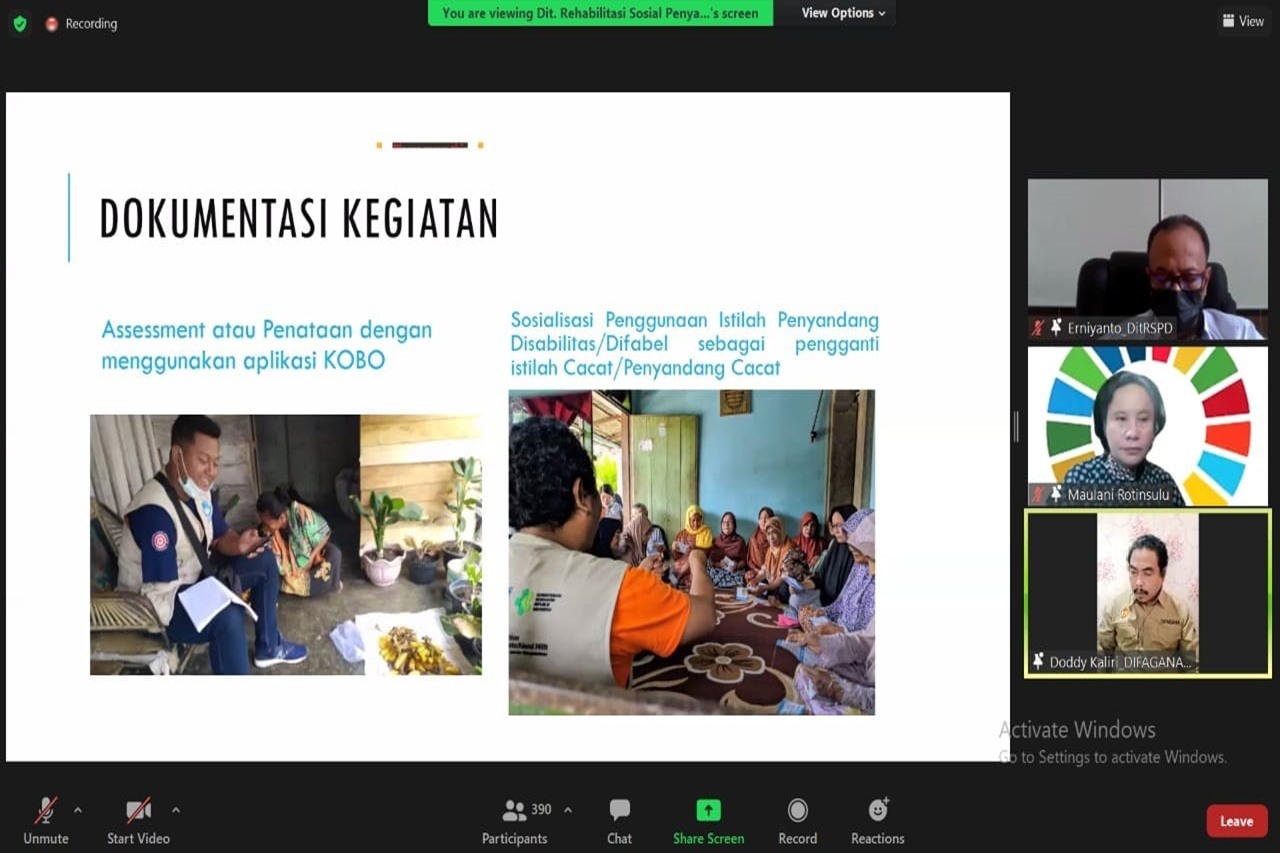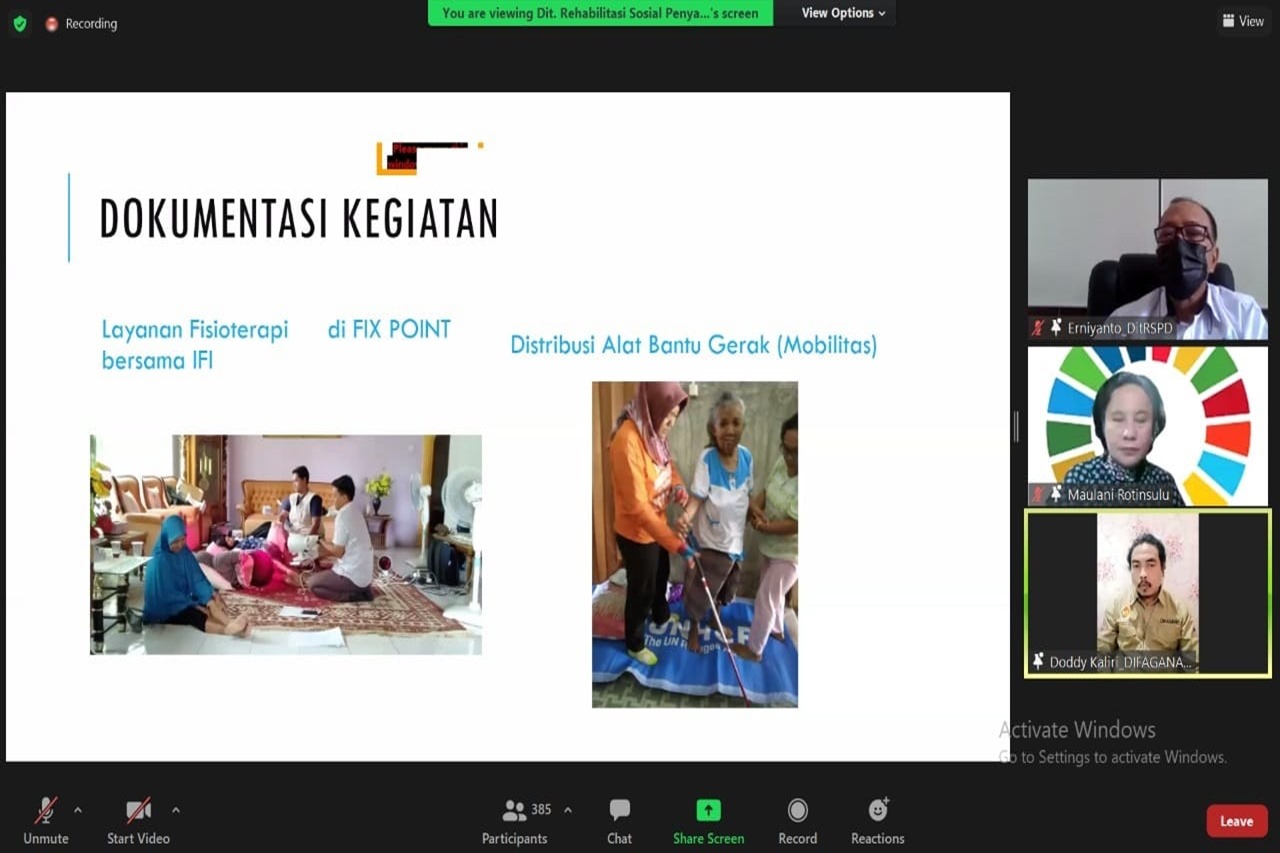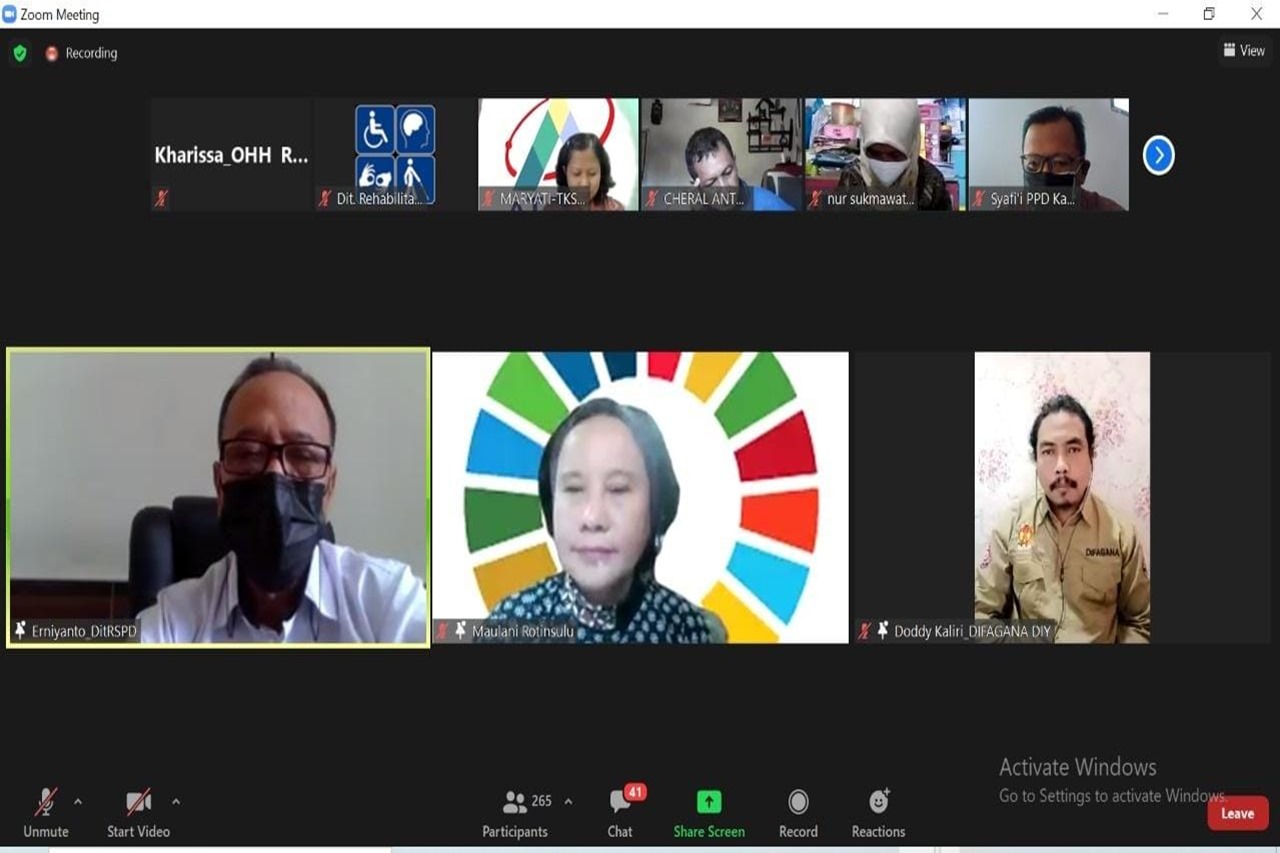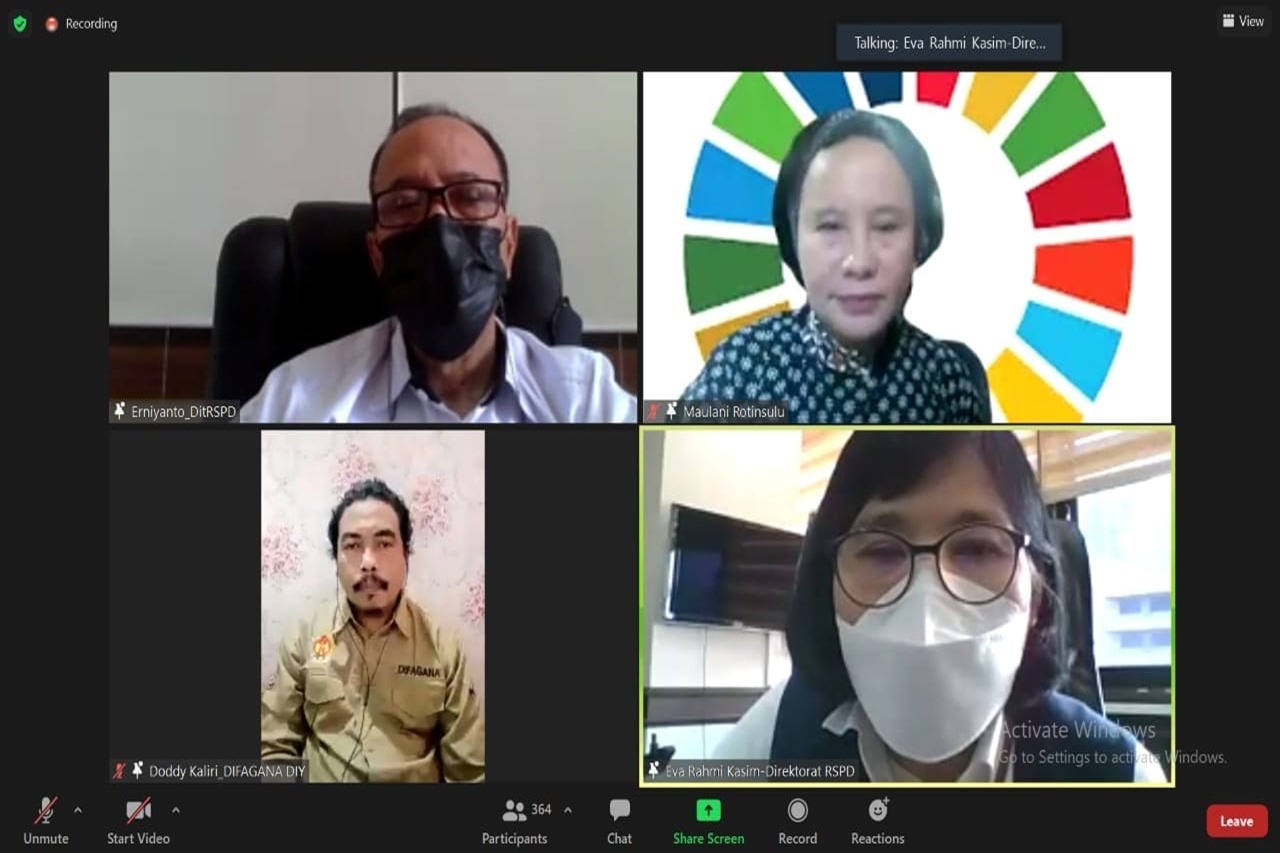JAKARTA (July 29, 2021) - The Directorate of
Social Rehabilitation of Persons with Disabilities, Ministry of Social Affairs,
held a Technical Guidance activity for the Assistants for Persons with
Disabilities (PPD) and Social Welfare Workers for Persons with Disabilities
(TKSPD) throughout Indonesia regarding Disaster Management of Disability
Inclusion.
This activity follows up
on the Social Rehabilitation Assistance Technical Guidance activity which was
carried out on July 21, 2021, and following the direction of the
Minister of Social Affairs of the Republic of Indonesia, Tri Rismaharini to
provide guidance related to disaster management.
Director of Social
Rehabilitation for Persons with Disabilities, Eva Rahmi Kasim said that this
activity and direction could be enlightenment for all, especially
companions. Not only understanding about terminology but also how to interact with
Persons with Disabilities.
"This is a valuable
lesson for all of us to continue to understand what Persons with Disabilities
are, how to interact with Persons with Disabilities, then how to behave or deal
with disaster situations. a more inclusive understanding of disability,"
said Eva.
In this activity, Maulani
Rotinsulu as the General Chair of the Indonesian Women with Disabilities
Association (HWDI) had the opportunity to be a speaker to provide guidance
regarding Inclusive and Responsive Disaster Management.
Maulani Rotinsulu directs
PPD and TKSPD to pay attention to the Functional Needs of Persons with Disabilities,
namely how to communicate directly and maintain the safety of persons with
disabilities or services that can support the safety of persons with
disabilities, handling transportation, and facilities and infrastructure. It
needs to be considered in disaster situations, said Maulani.
The role of facilitator in disasters is protected in Regulation Number 14 of 2014 on Handling the Protection and Participation of Persons with Disabilities in Disaster Management. Article 10 states that Persons with Disabilities, Assistants for Persons with Disabilities, Families of Persons with Disabilities and the general public are required to participate and obtain capacity enhancements to be able to assist or provide assistance to Persons with Disabilities in disasters.
 English
English
 Bahasa
Bahasa




